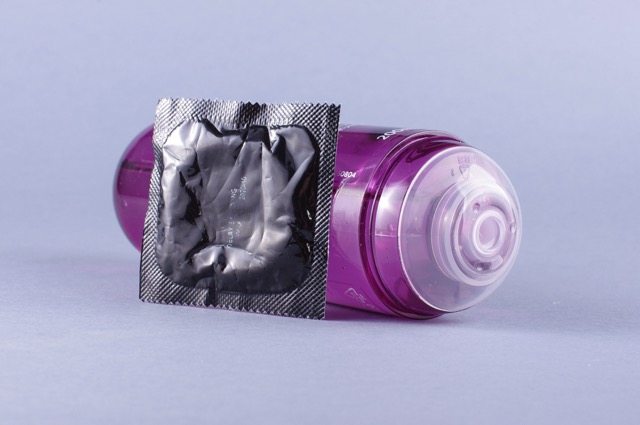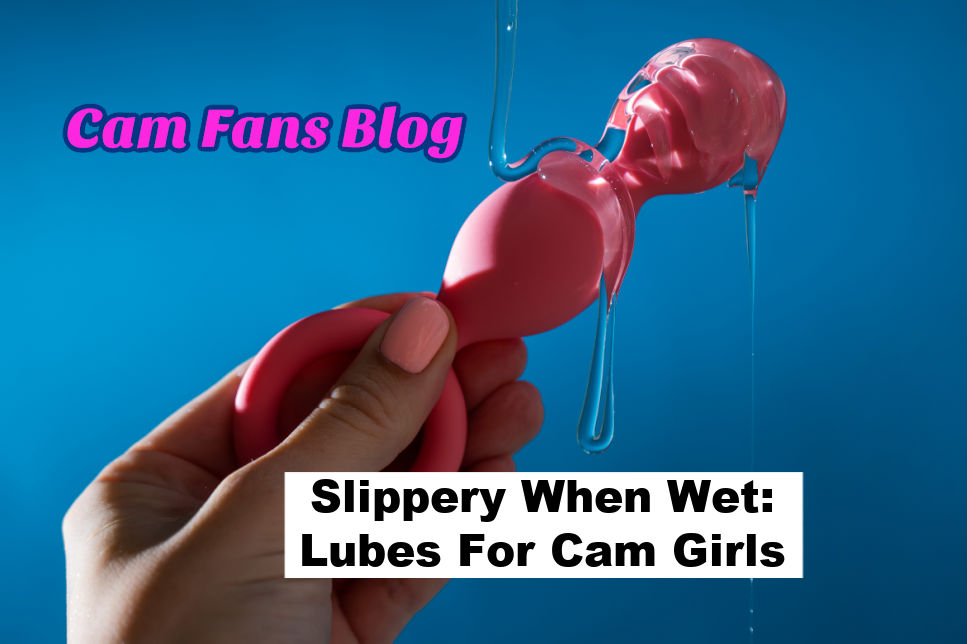As a cam girl, you’ve likely used lubricants before. If you haven’t, don’t worry, you’ll be an expert after reading this. While it’s a taboo topic for some, lubricants are a fantastic way to enhance pleasure for both you and your partner. Many cam girls consider them a necessary addition to their collection of camming products. Contrary to common belief, lubricants are not just for “spicing things up when things get stale.” Instead, think of them as an aid to enhance experience.
Let’s Reduce The Friction And Talk Lubes For Cam Girls & Sexual Pleasure
Before we begin, it’s important to note that saliva shouldn’t be used as a substitute for lube. Sex lubricants play a crucial role, and in this article, we’ll cover everything you need to know about lube. We’ll answer all your lube-related questions: What is lube? Who should use it? What are the different types? Which type should you use? Is it safe to use with sex toys? Join us as we explore the wonderful world of lubrication in the bedroom.
What is A Lube?

Firstly, let’s discuss the basic definition of a personal lubricant. Scientifically, a lubricant is a substance that reduces friction between surfaces in mutual contact. When it comes to personal lubricants, these are substances that enhance slipperiness during sexual activities. This could involve using a toy while livestreaming on Camsoda, engaging in foreplay, or during sexual intercourse.
A well-lubricated area is less likely to experience skin tears, breakage, or friction burns. Many people use lube during masturbation, foreplay, and various types of sex. Lubricants serve several purposes. They are primarily used in areas that lack natural lubrication, like the anus. Additionally, lube can supplement areas that do not produce enough natural lubricant. Many people also use lube to make activities more slippery and enjoyable.
Who Should Lube
There are no rules about who should or shouldn’t use lube. It can be used during solo masturbation or sexual activities with a partner. If your body isn’t producing enough natural lubrication for any reason, it’s preferable to add lube rather than endure the discomfort of friction and tightness.
It’s important to understand that there’s no shame in using lube. Many cam girls use it, and you should consider it too. Even when you’re highly attracted to your partner, there can be reasons why your vagina can’t produce enough natural lubrication. In such cases, lube is the obvious solution. But it’s not just for those times, as scientists agree that lube enhances the pleasure of various sexual acts.
Don’t buy into the stigma that using lube is only for people who aren’t aroused. Instead, see lube as a way to enhance your body’s responses and improve your sex life. Lube is for everyone, but it’s important to choose the right type, as there are different types for various applications and situations. More on this below, but first, let’s discuss more about the basics of this product and when it should be used.
When To Lube
Indeed, lubricant, or “lube,” serves many purposes beyond just enhancing wetness. It’s for everyone. Whether you’re enjoying solo play or intimate moments with a partner, lube can elevate the experience, making it slick and exciting.
Lubricant intensifies sexual arousal and enhances pleasure. It can prolong lovemaking, facilitate the use of sex toys, and add an extra flavor to oral sex. There are countless situations where this sexual aid can be beneficial.
In particular, lube is essential for anal play. Since the anal area lacks natural lubrication, lube provides the needed slipperiness for comfort and pleasure. Without it, anal play could become unpleasant and often painful.
Moreover, lube is crucial when using sex toys. Any play involving adult toys is smoother with lube. Later, I’ll discuss the types of lube suitable for different sex toys – yes, the type of lube matters.
It’s worth noting that in certain professions, like camming, lube is invaluable. Cam models, tasked with performing in front of a camera, can use lube to make the experience more pleasurable and manageable. Since camming can be demanding and not every performer can always be “in the mood,” lube can enhance the experience for both the performer and the viewers.
In conclusion, people should embrace the use of lube in their sexual play. It enhances comfort, increases sexual pleasure, and facilitates the use of sex toys that might otherwise be uncomfortable.
Lube Use
Using lube is simple – apply it to the area needing lubrication. Put some lube on your fingertips and spread it on your body, or pour it directly onto the area you want to lubricate. The same principle applies to sex toys – you can apply the lube to the toy or apply the lube to your body and glide the toy over it. Do what works best for you.
Lube comes in various containers, which can significantly affect how it’s dispensed. Some lubricants come in single-use packets, but they can be challenging to open with slippery hands. In the heat of the moment, you might accidentally tear the packet, causing the lube to spill where you don’t want it.
Most lubes come in bottles or squeeze-type tubes. For the squeeze-type lube, simply squeeze the needed amount onto your hand and apply it where needed. Applying lube from a bottle can be a bit more challenging, as it’s hard to control the amount that pours out. Many brands offer lube in bottles with dispenser pumps, which in my experience, is the easiest way to apply lube.
What Not To Use
Often, you may run out of lube when it’s most needed. However, resist the temptation to use everyday household items as a substitute. While there are some items that can be used as lube in exceptional cases, many common items are not suitable and can cause harm. Here are the items you should NEVER use as a replacement for lube:
- Body Moisturizers
- Cooking Oil
- Baby Oil
- Vaseline
- Honey/Syrup
- Butter/Margarine
- WD-40
Certain items are not suitable for the sensitive lining of the vagina, penis, and anal area. Using these items can result in skin inflammation, irritation, bacterial infections, and other health problems. The items mentioned here contain complex chemical compositions, filled with parabens, alcohol, and other harmful components.
These substances are incompatible with condoms, as many of the ingredients can react with latex and cause it to break down. This can lead to additional risks, such as sexually transmitted diseases or unwanted pregnancy.
This illustrates the potential issues associated with using household items as sexual lubricants. It’s recommended to keep a supply of your preferred sexual lubricant on hand and avoid risking your health by experimenting with items not intended for this use.
What Is Viscosity?
Lube viscosity, a technical term, is crucial for the desired level of slipperiness. In technical terms, lube is used to reduce friction between surfaces, and viscosity measures the lube’s resistance or “thickness.”
Put simply: the higher the lube’s viscosity, the harder it is to spread, and things will slide over it with more difficulty and may become unenjoyably sticky (think honey or syrup). A less viscous lube will be more slippery, allowing things to slide and glide more easily.
The viscosity of the lube depends on its composition. Water-based lubricants have low viscosity and facilitate smoother gliding, but they tend to evaporate more quickly, necessitating frequent reapplication. Thicker lubes with higher viscosity don’t need to be reapplied as often, but they don’t provide as smooth a glide as water-based lubes.
Lube Types and Body Compatibility
There are several types of personal lubricants, divided into various categories:
- Water-based
- Oil-based
- Silicone-based
- Hybrid
- Flavored
- Special effects lubricants
Not all compositions are compatible with every user, especially those with sensitive skin. Certain ingredients can cause irritation and discomfort. These include:
Glycerin/Glycerol – Derived from sugar alcohol, glycerin is commonly found in many cosmetic products. However, it can cause irritation, inflammation, and in severe cases, pain and yeast inflammation.
Parabens – This preservative is used in many cosmetic products, including lubricants. It can heighten sensitivity and cause irritation.
Mineral Oil and Petroleum Jelly – These ingredients, often found in oil-based cosmetics, aren’t suitable for internal use. They can lead to bacterial infections in the vagina, as well as discomfort and irritation.
Artificial Fragrances and Flavors – Though added to enhance the smell and taste of cosmetic products, these aren’t suitable for internal use. They can irritate sensitive skin on the genitals. It’s best to avoid such products as much as possible.
It’s generally safer to avoid personal lubricants containing glycerin, parabens, artificial fragrances, and flavors for both internal and external use.
Remember to check the expiration dates on lubricants, just as you would with any other personal use product. Discard any expired lubricant to avoid discomfort.
Lubes To Avoid
Be cautious when choosing a lubricant, as it’s applied to sensitive areas both externally and internally. Flavored lubricants can be fun, but they often contain artificial ingredients that may irritate the skin and cause discomfort.
It’s also crucial to avoid warming and tingling lubricants. They typically contain artificial ingredients not meant for intimate body parts. It’s advisable to steer clear of lubricants with numbing agents, particularly for anal sex or play. These numb the area, which may lead to accidental injury.
To ensure the lube is compatible with your skin, apply some on the inside of your elbow. If there’s no reaction, test it on the outside of your vulva or penis before applying it internally.
Lubes & Sex Toys
Sex lube is often used with sex toys, but which type of lube is compatible with which kind of toy?
Water-based lubricants are compatible with all sex toys due to their water-based nature. They offer a superb slippery feel and absorb into the skin without causing discomfort. However, you may need to reapply them during prolonged sessions or when using large toys, as they can dry out. Water-based lubes are safe to use with condoms as they don’t react with latex, but they aren’t suitable for use in water because they wash off easily.
Oil-based lubes are suitable for larger toys that require extra slipperiness. They don’t negatively interact with silicone-based toys but can dissolve vinyl and latex. If you use condoms, avoid oil-based and petroleum-based lubricants. They can be hard to wash off sheets and clothes, but once applied, they last longer without the need for reapplication.
Silicone-based lubricants provide the best of both worlds – they offer slipperiness, long-lasting effects and are safe to use with condoms. Being inert, silicone-based lube is hypoallergenic and doesn’t cause inflammation. However, some silicone-based lubricants can damage the surface of certain sex toys. Ensure you’re using a genuine silicone toy to avoid adverse effects. Always read the label on the pack for safety. Silicone-based lubes are harder to wash off, potentially leaving a “sticky” feeling for hours afterwards.
Lube Types To Consider
- Water-based lubricants
- Oil-based lubricants
- Silicone-based lubricants
- Hybrid lubricants
- Anal lubricants
- Water-based sex lubricants
This product uses water as its base, with additional ingredients included to enhance its slipperiness and longevity. These enhancements create a more viscous lubricant and can, in some instances, change its appearance from transparent to opaque.
The water-based lubricant is compatible with both latex and latex-free condoms, and all types of sex toys. It’s easy to wash off and doesn’t stain the skin or clothing. However, it’s not suitable for use in water and may require reapplication during prolonged solo or sexual activities.
Oil-based Lubes
Oil-based lubricants are ideal for those not using condoms, as oil can degrade latex. However, they are safe with silicone toys and offer ample slipperiness. They moisturize the skin, can be used for intimate massages to enhance foreplay, and are water-resistant. However, they can stain clothing and sheets.
Sometimes, oil-based lubricants may solidify and require warming before use. The most effective ones often contain coconut oil, avocado oil, olive oil, Vitamin E oil, and other natural oils. It’s important to avoid those containing mineral oil and petroleum jelly, as they can irritate the vaginal lining and penile skin.
Silicone-Based Lubes
Silicone-based lubricants are primarily composed of silicone, which is hypoallergenic and not water-soluble. They offer substantial slipperiness and do not evaporate or degrade due to friction.
While safe to use with condoms and silicone-based toys, they should not be used with toys made of rubber, PVC, or vinyl. Despite the potential to stain clothes and sheets, silicone lubricants can be cleaned off skin and sex toys with soap and water. They are also suitable for use in water-based activities.
Hybrid Lubes
Hybrid lubricants blend the benefits of water and silicone-based lubricants, offering a long-lasting effect and the slipperiness of water-based lube. They are safe to use with condoms and various toys and are easier to clean off than regular silicone-based lubes.
However, there are no strict manufacturing standards in the sex toy industry. Therefore, before purchasing, examine several brands’ ingredients and seek positive online reviews. Hybrid lubricants can enhance your intimate experience as they don’t dry out like water-based lubes, making them suitable for anal sex.
Anal Lubes
Considering back-door play? Let’s delve into it.
While any type of lubricant can be used for anal play, it is generally better to use one specifically designed for this purpose. These can be water-based, oil-based, or silicone-based, but they are noticeably thicker (more viscous) than regular lubes. They typically have a gel-like consistency and are usually opaque.
The opacity is beneficial as it allows you to see where you’ve applied the lube, ensuring no spots are missed, which could lead to discomfort during anal play. The thicker formula also provides longer-lasting coverage, eases the insertion of anal toys, and facilitates smoother anal intercourse.
Conclusion: Better Lube = Better Experience
There isn’t a single best lubricant available on the market as it depends on the usage and personal preference. I hope this covers all your pressing questions about lubricants. Stay tuned to our blog for more updates on this and similar topics.

